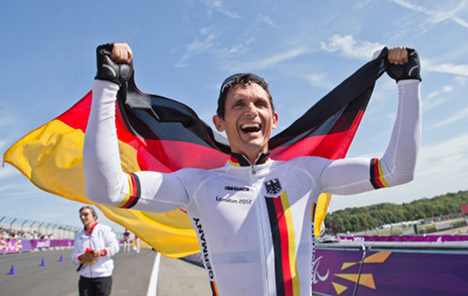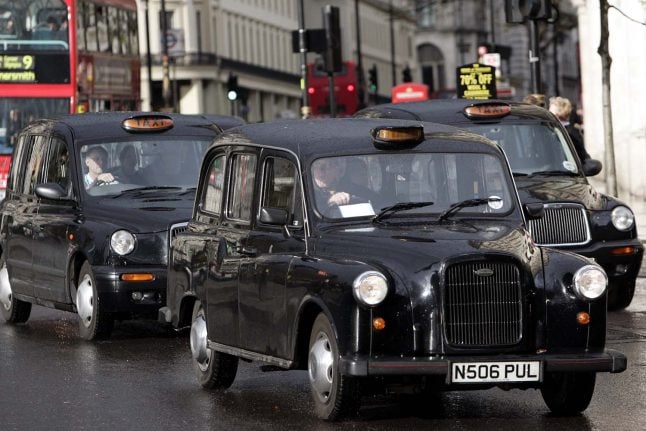With 18 gold, 26 silver and 22 bronze medals in this year’s Paralympic summer games, Germany was not one of the runaway success stories leaving London. But the squad bagged three last-minute gold medals on Sunday, one of which for a record-breaking long-jump by Markus Rehm.
Climbing three places since the 2008 Beijing games, Germany’s gold medals included equestrian, shot-put, table tennis, and athletics events.
Stand-out athletes included 59-year-old Marianne Buggenhagen, who collected silver in the shot-put. The medal was her thirteenth, who said she was “motivated like you couldn’t believe,” for the Rio games in four years time.
The final gold was won by table tennis champion Jochen Wollmert, for whom it was his fifth medal. He put his win down to “47 years of experience” under pressure.
Table tennis player Thomas Schmidberger carried the German flag at the sold-out closing ceremony on Sunday. The outstanding performances at, huge interest in and bombastic staging of, this year’s Paralympics have been widely hailed as marking a huge step forward for the perception of disabled people.
But German society has much ground to cover, said Hubert Hüppe, the government’s commissioner for the disabled on Monday. He said while integration was well-established in the UK, in Germany it was still commonplace for disabled people to be excluded from general education and disadvantaged.
Hüppe told radio station Deutschlandradio Kultur that disabled pupils should receive better sports lessons.
He also praised the London games for being positive for the disabled community but did voice disappointment that there was a notable lack of mentally disabled athletes.
Eager supporters snapped up around 2.7 million tickets for the eleven-day event, a record for the games. Four years ago in Beijing, 1.29 million were sold and four years before that in Athens, just 850,000 were sold.
DPA/The Local/jcw




 Please whitelist us to continue reading.
Please whitelist us to continue reading.
Member comments